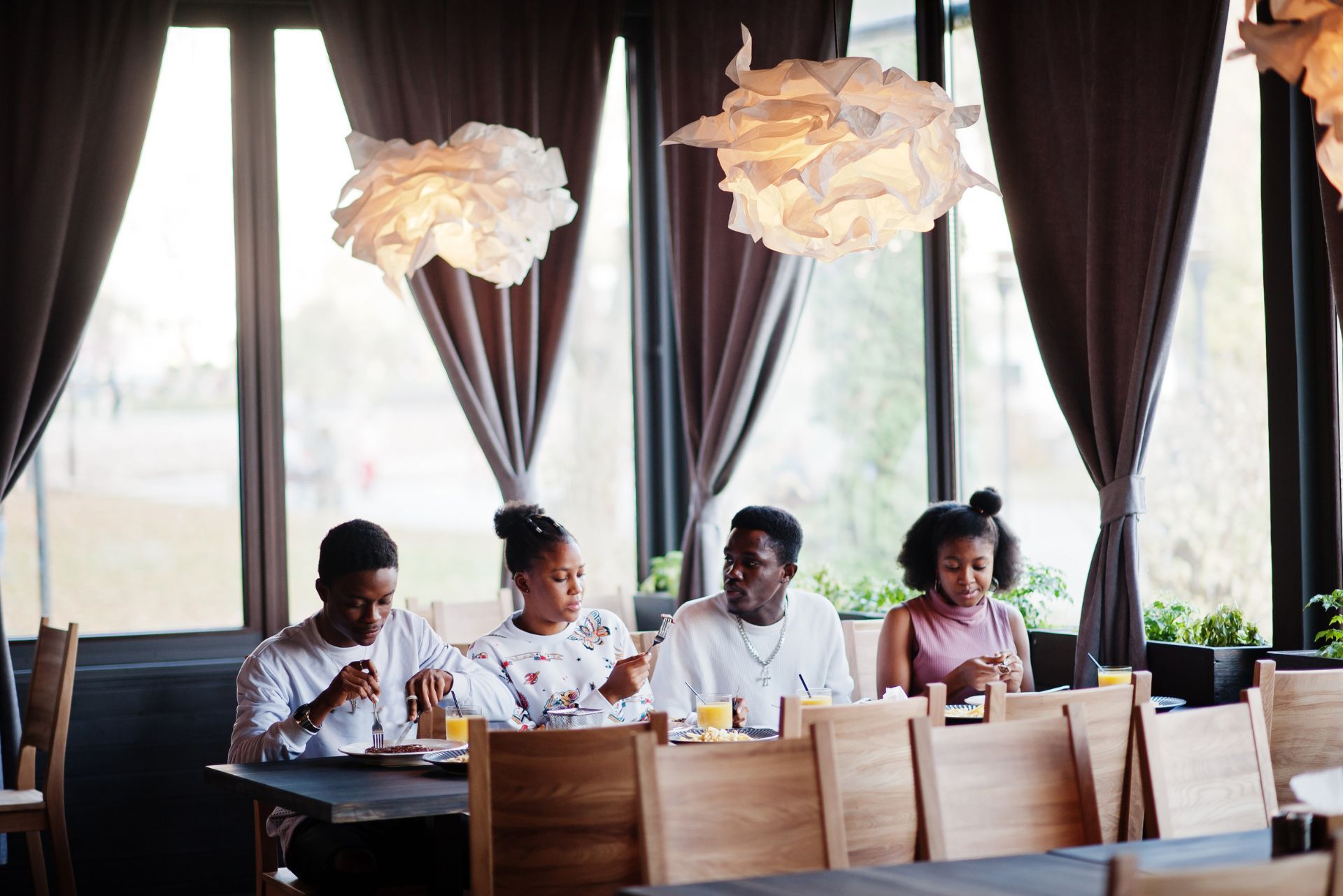
Top 3 Recommended Policies

Operating a restaurant in Texas can be a rewarding venture, but it also comes with its own set of risks and challenges. One of the most crucial aspects of running a successful restaurant is ensuring that it is adequately protected through insurance. This article aims to provide a comprehensive overview of Texas restaurant insurance, covering everything from the types of coverage available to the specific needs of restaurant owners.
Understanding the Basics of Restaurant Insurance
Restaurant insurance is designed to protect business owners from various risks associated with running a food service establishment. This type of insurance can cover a range of incidents, including property damage, liability claims, and employee-related issues. Understanding the basics of restaurant insurance is essential for any owner looking to safeguard their investment.
What is Restaurant Insurance?
Restaurant insurance is a specialized form of business insurance that encompasses various policies tailored to the unique needs of food service establishments. It typically includes general liability, property insurance, and workers' compensation, among other coverages. Each of these components plays a vital role in protecting the business from potential financial losses. For instance, general liability insurance can protect against claims of bodily injury or property damage that occur on the premises, while property insurance covers damage to the restaurant's physical assets, such as equipment, furniture, and inventory.
Why is Restaurant Insurance Important?
The restaurant industry is fraught with risks, from kitchen fires to slip-and-fall accidents. Without proper insurance coverage, a single incident could lead to significant financial strain or even the closure of the business. Restaurant insurance not only provides peace of mind but also ensures that owners can focus on running their establishment without the constant worry of unforeseen events. Furthermore, having adequate insurance can enhance a restaurant's credibility with customers and suppliers, as it demonstrates a commitment to responsible business practices and risk management.
Common Risks Faced by Restaurants
Restaurants face a myriad of risks that can impact their operations. These risks can include foodborne illnesses, equipment malfunctions, and property damage due to natural disasters. Understanding these risks is the first step in determining the necessary insurance coverage to mitigate them. For example, foodborne illnesses can lead to costly lawsuits and damage to a restaurant's reputation, making it crucial for owners to have liability coverage that specifically addresses these types of claims. Additionally, equipment malfunctions can disrupt service and lead to financial losses, underscoring the importance of having insurance that covers repair or replacement costs for essential kitchen appliances and systems.
Moreover, the unpredictability of natural disasters such as floods, earthquakes, or hurricanes can pose significant threats to restaurants, especially those located in vulnerable areas. Business interruption insurance can be a valuable component of a comprehensive restaurant insurance policy, as it helps cover lost income and ongoing expenses during periods when the restaurant cannot operate due to such disasters. By recognizing and preparing for these common risks, restaurant owners can create a robust insurance strategy that not only protects their business but also fosters resilience in the face of challenges.

Types of Restaurant Insurance Coverage
There are several types of insurance coverage that restaurant owners should consider. Each type addresses specific risks and can be tailored to meet the unique needs of the establishment. Below are some of the most common types of coverage available.
General Liability Insurance
General liability insurance is fundamental for any restaurant. It protects against claims of bodily injury, property damage, and personal injury that may occur on the premises. For instance, if a customer slips and falls, this insurance can cover medical expenses and legal fees associated with the claim. Additionally, it can also protect against claims arising from advertising injuries, such as copyright infringement or defamation, which can be particularly relevant for restaurants that actively engage in promotional campaigns.
Property Insurance
Property insurance covers physical assets, including the building, equipment, and inventory. In the event of a fire, theft, or natural disaster, property insurance can help cover the costs of repairs or replacements, ensuring that the restaurant can resume operations as quickly as possible. Furthermore, this type of insurance can also extend to cover loss of income due to business interruption, providing a financial safety net during recovery periods when the restaurant is unable to operate at full capacity.
Workers' Compensation Insurance
Workers' compensation insurance is crucial for restaurants with employees. It provides coverage for medical expenses and lost wages for employees who are injured on the job. In Texas, employers are not legally required to carry workers' compensation insurance, but it is highly recommended to protect both the business and its employees. Beyond just covering injuries, this insurance can also offer rehabilitation services to help employees return to work more quickly, fostering a supportive environment that can enhance employee morale and retention.
Liquor Liability Insurance
For establishments that serve alcohol, liquor liability insurance is an essential coverage option. This insurance protects against claims that may arise from incidents involving intoxicated patrons, such as accidents or injuries that occur after leaving the restaurant. It can also cover legal fees and settlements if the restaurant is found liable for over-serving alcohol. Given the complexities surrounding alcohol service laws and regulations, having this insurance can provide peace of mind to restaurant owners, ensuring they are protected against potential litigation.
Equipment Breakdown Insurance
Equipment breakdown insurance is another important coverage for restaurants, as it protects against the loss of income and repair costs associated with the failure of essential kitchen equipment. This can include ovens, refrigerators, and dishwashers, which are critical to daily operations. If a major piece of equipment breaks down, this insurance can help cover the costs of repairs or replacements, as well as any lost revenue during the downtime. By safeguarding against unexpected equipment failures, restaurant owners can maintain their service quality and minimize disruptions to their business.
In addition to the primary types of insurance, several additional coverage options can further protect a restaurant. These options can be tailored to fit the specific needs and risks associated with the business.
Liquor Liability Insurance
If a restaurant serves alcohol, liquor liability insurance is essential. This coverage protects against claims arising from alcohol-related incidents, such as accidents or injuries caused by intoxicated patrons. It can also cover legal fees and settlements resulting from such claims. Furthermore, many states require restaurants that serve alcohol to carry this type of insurance, making it not only a smart business decision but also a legal necessity. The costs associated with a single alcohol-related incident can be staggering, and having liquor liability insurance can provide peace of mind that the restaurant is protected against these potential financial burdens.
Business Interruption Insurance
Business interruption insurance provides financial support in the event that a restaurant must temporarily close due to a covered incident, such as a fire or natural disaster. This coverage can help cover lost income and ongoing expenses, allowing the business to recover more quickly. It is particularly important for restaurants, as they often operate on thin margins and a prolonged closure can jeopardize their financial stability. Additionally, this insurance can cover extra expenses incurred during the recovery period, such as renting temporary kitchen space or purchasing equipment to continue operations elsewhere, ensuring that the business can maintain some level of service even in challenging circumstances.
Equipment Breakdown Insurance
Restaurants rely heavily on various equipment, from ovens to refrigerators. Equipment breakdown insurance covers the repair or replacement costs of essential kitchen equipment that may fail unexpectedly. This coverage can be a lifesaver, as equipment failures can lead to significant operational disruptions. Moreover, the cost of replacing high-end kitchen appliances can be exorbitant, and without this insurance, a restaurant could face severe financial strain. In addition to covering repairs, some policies may also include coverage for lost inventory due to equipment failure, further safeguarding the restaurant's bottom line. Regular maintenance and inspections can help minimize the risk of breakdowns, but having this insurance provides an additional layer of security against unforeseen circumstances that could disrupt service and impact customer satisfaction.
Factors Influencing Insurance Costs
The cost of restaurant insurance can vary significantly based on several factors. Understanding these factors can help restaurant owners make informed decisions when selecting coverage and providers.
Location
The location of the restaurant plays a crucial role in determining insurance costs. Areas with higher crime rates or a history of natural disasters may result in higher premiums. Additionally, the proximity to emergency services can also influence costs, as locations that are more accessible may be seen as lower risk. For instance, a restaurant situated in a bustling urban area might face different challenges compared to one in a rural setting. Urban establishments may deal with more theft or vandalism, while rural ones might be more susceptible to flooding or wildfires, depending on their geographical features.
Type of Cuisine
The type of cuisine offered can impact insurance rates as well. Certain types of food preparation, such as deep frying or open flames, may be considered higher risk and could lead to increased premiums. Understanding how the type of cuisine affects insurance costs is essential for restaurant owners. For example, a restaurant specializing in barbecue may need to invest in additional fire safety measures, which can further influence their insurance premiums. Moreover, unique culinary practices, such as those involving exotic ingredients or specialized equipment, can also add layers of complexity to the risk assessment process, making it vital for owners to discuss these specifics with their insurance agents.
Claims History
A restaurant's claims history is another significant factor in determining insurance costs. Businesses with a history of frequent claims may face higher premiums, while those with a clean record may benefit from lower rates. Maintaining a safe environment and minimizing risks can help keep insurance costs manageable. Additionally, implementing regular staff training on safety protocols and emergency procedures can not only reduce the likelihood of accidents but also demonstrate to insurers that the restaurant is proactive in risk management. This proactive approach can lead to better rates and potentially even discounts from insurance providers who appreciate the commitment to safety and risk reduction.
Choosing the Right Insurance Provider
Selecting the right insurance provider is a critical step in securing adequate coverage for a restaurant. The right provider can make a significant difference in the quality of service and support received during the policy term.
Researching Providers
When searching for an insurance provider, it is essential to conduct thorough research. Look for companies that specialize in restaurant insurance and have a solid reputation within the industry. Reading reviews and seeking recommendations from other restaurant owners can provide valuable insights into potential providers. Additionally, consider the provider's financial stability and claims handling process. A company with a strong financial background is less likely to face issues that could affect their ability to pay out claims, while an efficient claims process can significantly reduce stress during challenging times.
Understanding Policy Terms
Before committing to an insurance policy, it is crucial to understand the terms and conditions. Pay close attention to coverage limits, deductibles, and any exclusions that may apply. A clear understanding of the policy can help avoid surprises when filing a claim. Furthermore, it is wise to inquire about additional coverage options that may be relevant to your specific restaurant type, such as coverage for food spoilage, equipment breakdown, or liability related to alcohol service. These specialized coverages can provide an extra layer of protection and peace of mind.
Seeking Professional Advice
Consulting with an insurance broker or agent who specializes in restaurant insurance can be beneficial. These professionals can help navigate the complexities of insurance options, ensuring that restaurant owners select the coverage that best meets their needs and budget. They can also provide insights into industry trends and emerging risks, such as cyber liability or pandemic-related coverage, which have become increasingly important in recent years. By leveraging their expertise, restaurant owners can make informed decisions that safeguard their business against unforeseen events.

Common Misconceptions About Restaurant Insurance
There are several misconceptions surrounding restaurant insurance that can lead to confusion among owners. Addressing these misconceptions can help restaurant owners make more informed decisions regarding their coverage.
All Insurance Policies are the Same
One common misconception is that all insurance policies are the same. In reality, policies can vary significantly in terms of coverage, exclusions, and limits. It is essential to carefully compare different policies to ensure that the chosen coverage adequately protects the business.
Insurance is Too Expensive
Many restaurant owners believe that insurance is prohibitively expensive. While costs can vary, there are often options available to fit different budgets. Working with an insurance broker can help identify affordable coverage that meets the specific needs of the restaurant.
I Don’t Need Insurance if I’m a Small Restaurant
Some small restaurant owners may think they do not need insurance because of their size. However, even small establishments face risks that can lead to significant financial losses. Having insurance coverage is essential for protecting any business, regardless of its size.
Steps to Take After an Incident
In the unfortunate event of an incident, knowing the proper steps to take can help streamline the claims process and minimize disruptions to the business.
Document the Incident
Immediately after an incident occurs, it is crucial to document everything. Take photographs, gather witness statements, and keep detailed records of any damages or injuries. This documentation will be valuable when filing an insurance claim.
Notify Your Insurance Provider
Once the incident has been documented, notify the insurance provider as soon as possible. Provide them with all relevant information and documentation to facilitate the claims process. Prompt communication can help ensure a smoother resolution.
Follow Up on the Claim
After filing a claim, it is essential to follow up regularly with the insurance provider. Stay informed about the status of the claim and be prepared to provide any additional information or documentation they may request. This proactive approach can help expedite the claims process.
Conclusion
In the dynamic world of the restaurant industry, having the right insurance coverage is essential for protecting the business and ensuring its longevity. By understanding the various types of coverage available, the factors influencing insurance costs, and the steps to take after an incident, restaurant owners can make informed decisions that safeguard their investment.
Ultimately, restaurant insurance is not just an expense; it is a vital component of a successful business strategy. By prioritizing insurance needs and working with knowledgeable providers, restaurant owners can focus on what they do best—serving delicious food and creating memorable dining experiences for their customers.
Contact Us

